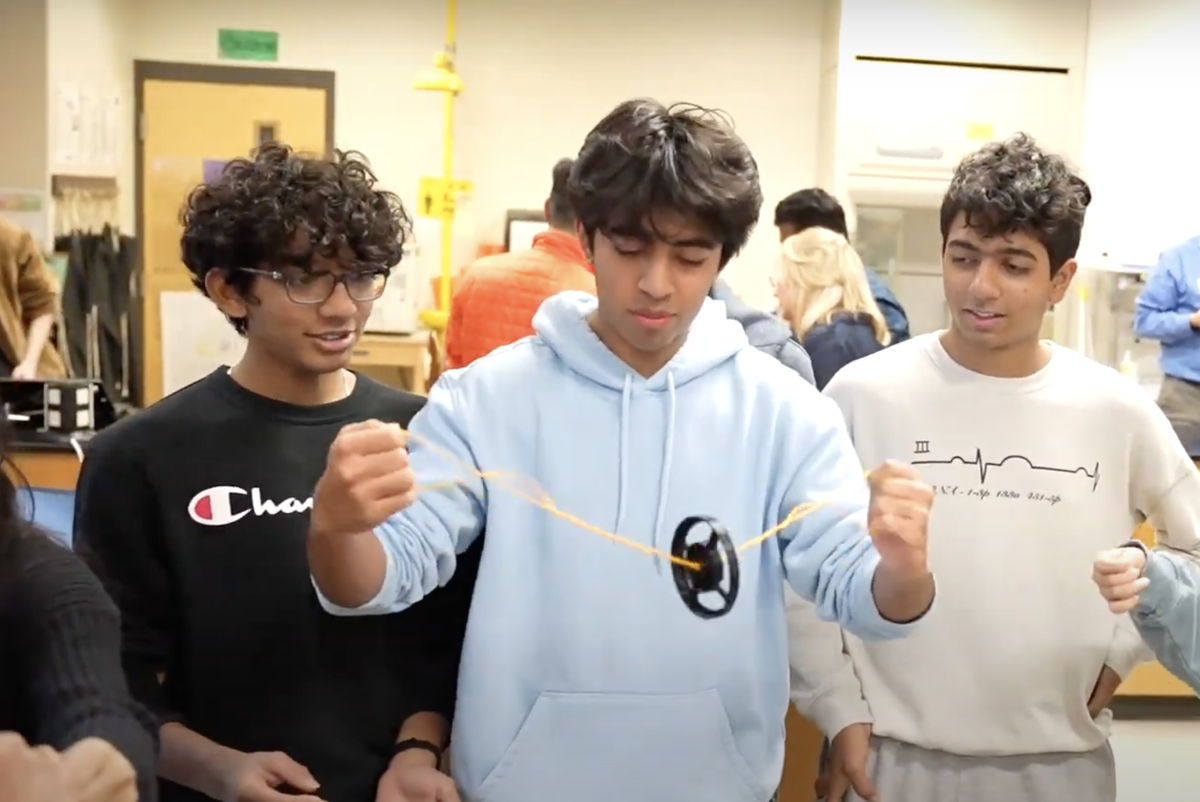In 2017, Gaurav Byagathvalli, a Lambert High School junior, reached out to Georgia Tech Assistant Professor Saad Bhamla. They had worked together as part of Lambert’s synthetic biology program led by teacher Janet Standeven. Byagathvalli wanted to transform E. coli with engineered plasmids for an experiment and needed to use electroporation. Rather than purchase a $10,000 electroporator, the team brainstormed ideas to build a frugal version. With some ingenuity, a barbecue lighter became an electroporator and cost less than a dollar, enabling frugal cell transformations.
More innovations like this exist in Bhamla’s lab: an automated tracking microscope for STEM, a 3D-printed centrifuge, and an inexpensive cell lysis device for molecular biology. These inventions aren’t just fun challenges — they’re also part of frugal science research between Georgia Tech and Lambert High School. Creating accessible, affordable equipment to democratize research is the foundation of frugal science. Now, with a new five-year grant from the National Institutes of Health (NIH), Bhamla and Standeven will pave the way to bring frugal science to high schools across Georgia. This NIH Science Education Partnership Award (SEPA) leverages partnerships with Project ENGAGES, K-12 Inventure Prize, CEISMC, and the Georgia Bio Education Institute to achieve their goal.
“We’re trying to create the next generation of scientists, and we're going to cultivate their ideas into products, and students into inventors and authors,” Bhamla said.
